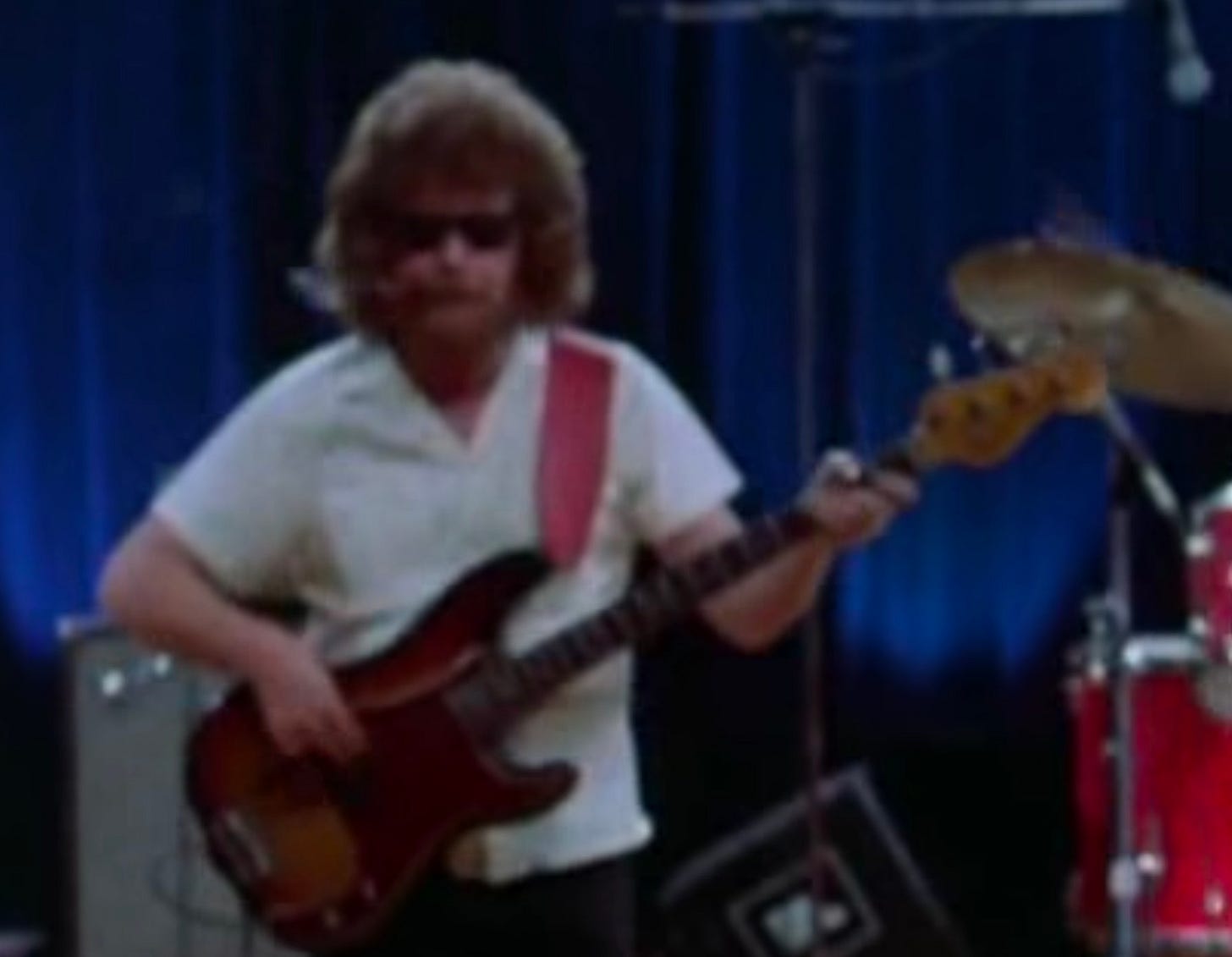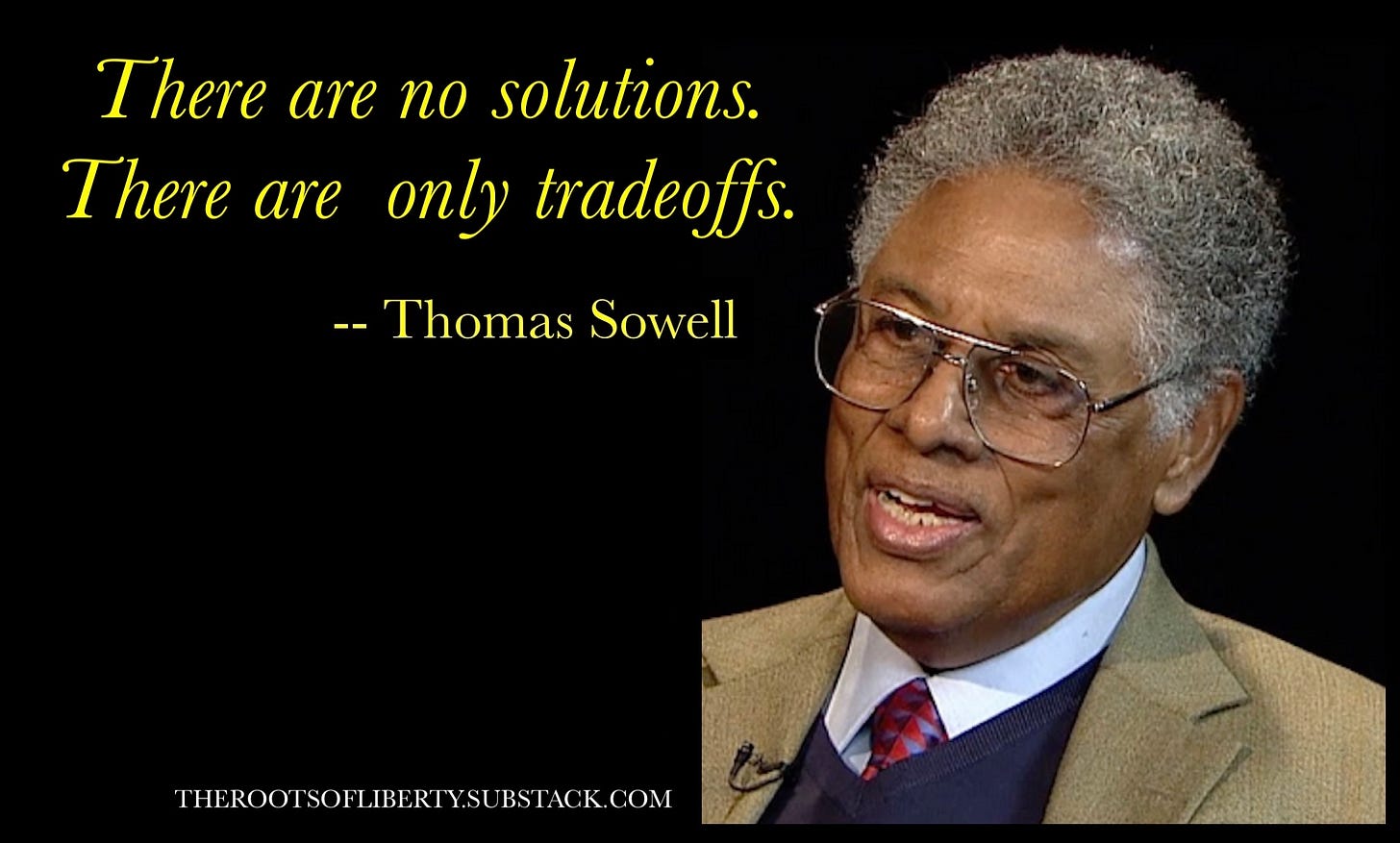Competition and Opportunity
Much of the twentieth century in America bore witness to dialogue about race discrimination, dialogue that ran the gamut from colorblindness to eugenics. A lot of that conversation - indeed a heavy preponderance, I'd say - centered on what to do. Given the context, e.g. Jim Crow laws, anti-miscegenation laws, and other restrictions on individuals' behavior, the "do something" made sense.
"Do something" doesn't come without problem or peril, however, since coercion often produces unintended consequences, unintended incentives, and recalcitrance in many who'd otherwise be open to evolution.
A recent discussion came to mind about this. A friend and I were talking music, and in particular the "co-mingling" of white and black musicians in eras where such behavior was derided by many. Booker T. & the M.G.'s came up, in the context that music was one of the great societal integrators. Two of the group's members were white, two black, and together they were instrumental (pun intended) in influencing soul and R&B music. As the house band for Stax Records in Memphis, they played with such musical legends as Otis Redding, Wilson Pickett, Sam & Dave, Delaney & Bonnie, and many more. Two members, Steve Cropper and Donald "Duck" Dunn, later played with the Blues Brothers band and Dunn had a memorable line in the movie.
We had a band powerful enough to turn goat piss into gasoline.
All this came bubbling back as I watched this clip of a (younger) Thomas Sowell expounding on discrimination (and reverse discrimination) in university admissions.
Discrimination costs them a lot less than it costs someone in a competitive industry. Highly competitive industries, for example, sports and entertainment, have typically been much more open, than much more closed-in kinds of non-competitive things like public utilities and non-profit organizations, foundations, universities, hospitals, and so on.
Sowell went on to argue that the remedy to poor education for blacks was school choice, i.e. introducing competition into a non-competitive system.
Baseball's color barrier was famously broken by Jackie Robinson in 1947, and by 1959, every team had black players on it. The color barrier was broken in basketball that same year, and in football a year earlier. Today, 56% of NFL players and 72% of NBA players are black. Major League Baseball, with only 7% of its players being black, has been criticized by the "do something" types, but the truth is that this is a societal outcome, not due to any discriminatory attitude among owners. There's big money in baseball, and an owner or general manager who would not hire the best players simply because they were black would risk financial harm. No, the reason baseball isn't very "black" is because blacks gravitate to basketball and football nowadays, for geographic (football is bigger in the south) and demographic (basketball courts fit more easily in an urban setting) reasons. That MLB is 32% hispanic (vs 19% of the population overall), and that baseball is extremely popular in such places as Puerto Rico, Dominican Republic, and Cuba furthers the non-racism conclusion.
The assertion that discrimination costs in a competitive setting is furthered by basic microeconomics. If an employer artificially reduces his available labor pool by rejecting all black candidate, he will ultimately be forced to pay higher wages to fill his staffing needs. If a shop owner rejects black customers, he will have to charge his other customers more to make up for the revenue loss an artificially constrained customer base will cause, and if his competitors don't do the same, his bottom line will suffer.
These theoreticals are backed by history. Minimum wage laws were first put in place to enable discrimination, to ensure that white workers weren't undercut by black workers in the labor market. By distorting the market, government facilitated* discriminatory hiring, and a practice that would have come with financial penalty was absolved. The remedy was, of course, more market distortions in the form of anti-discrimination laws, rather than removal of the first distortions that caused the problem.
Discrimination, especially today where bigotries of the past have mostly evolved out of society, is best addressed organically, i.e. by letting the relentless pressures of free markets work their magic. Unfortunately, this remedy requires two things - that people reject nirvana fallacies, and that people reject the illusion of control. Both run contrary to human nature, so instead of liberating children from failing monopolies via the introduction of school choice, we get endless rationalizations as to why this would be a bad idea and that the remedy is doing more of what doesn't work, i.e. pouring ever more money into the existing, failing monopoly. Sadly, I've heard anti-choice arguments from pro-market conservatives as well, arguments that also stem from a predilection to nirvana fallacies (when they're not rooted in the premise that the government is a well-oiled Machiavellian control machine rather than a mass of competing dysfunctions).
Because competition does not produce perfect outcomes, some leap to attack. Because there are anecdotal cases of need insufficiently met, "do somethings" insist that government intervention is the remedy. They forget the adage that the cure must not be worse than the disease, or Sowell's admonition:
They ignore the harm that government interventions have created, and wrap themselves in an armor of good intentions (usually pursued with Other People's Money).
Competition in a free society atop a foundation of protections for individual and property rights has proven to be the greatest elevator of human living conditions and life-quality in history. Top-down control has proven to be a destroyer, of living standards, of opportunity, and of the bonds that preserve and advance societies. Why, then, do so many insist on them, and so fear competition?
I hit on the answer before - trusting the market requires relinquishing control. That it's rationally the best remedy - BY FAR - is for many insufficient to override the evolutionary wiring that favors control and creates an illusory certainty of outcome. This is why it took millennia of civilization to produce the rational thinking of the Enlightenment and the political structure that is the US Constitution, and it's why those seminal achievements in human social evolution are under constant attack.
Want things to get better? Act civilly, ethically, and with respect for others - and let others act as they will, rather than trying to manage them. With the protections for our fundamental rights written in our laws, that's all you need to do. The outcome will be better than anything you can gin up and impose, no matter how smart you are.




Great piece, Peter. I sent this to my adult children to share with the grandkids. I especially liked your description of government. "Sadly, I've heard anti-choice arguments from pro-market conservatives as well, arguments that also stem from a predilection to nirvana fallacies (when they're not rooted in the premise that the government is a well-oiled Machiavellian control machine rather than a mass of competing dysfunctions)." It really is a hodge-podge of competing functions, often at cross-purposes from each other. That reminder alone was worth the annual cost of my subscription.
Nicely done, as usual, Peter! You are a brilliant writer. Question: Is Dr. Sowell a libertarian as opposed to being a conservative?